 |
|
|
|
|||||||||||
VANCOUVER - Canada's Chinese community put out the call for more stem cell donors Saturday to address a disproportionate under-representation in the international stem cell registry.
With a list where Chinese represents less than 3 percent while Caucasians make up about 80 percent of the Bone Marrows Donor Worldwide registry, the Toronto-based Other Half Chinese Stem Cell Initiative organized a four-city stem cell drive, all on the same day, to bring greater awareness to the situation.
In all, 11 events were taking place in Vancouver, Calgary, Toronto and Montreal where Chinese Canadians, and the general public at large, could sit down at registration station, give a sample of their DNA through a painless swab of their inside cheek, and then have their data put into the international registry.
Once in the data bank, a doctor or medical professional anywhere in the world can search for a successful match to provide a stem cell transplant for someone suffering from leukemia, lymphoma, sickle cell disease, genetic disorders, blood cancer or other blood disorders, among others.
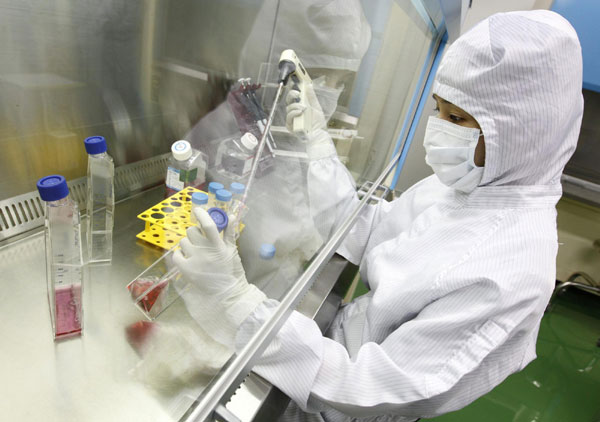 |
|
A researcher controls medium for culturing stem cells during a photo call at an aseptic room of the FCB-Pharmicell laboratory in Seongnam, near Seoul in this June 28, 2011 file photograph. [Photo/Agencies] |
In a shopping mall in the Vancouver suburb city of Richmond, Nora Lee, co-chair of the 331 event, named after its March 31 date, pointed out about 25 percent of patients find a donor through a family member.
However, with the disproportionate amount of Chinese in the stem cell registry, less than 20 percent of those looking outside their family have a chance to find a match and usually die awaiting a transplant. In comparison, Caucasian patients have an 80 percent chance of finding unrelated matching donors.
Lee said awareness was slowly growing as the number of Chinese registrants in Canada had increased 700 percent over the past three years, including the 5,894 people who signed up at last year's event. She added such events helped to dispel myths and misinformation about stem cell donations within the community.
"A ?lot of people believe that you are going to lose a lot of blood, you have to go through a complicated surgery. But actually the fact nowadays is you can do it kind of like a blood donation. Today what we are doing is not actually asking people to donate, we're just asking people to register," ?she said, adding the chance of being a related match is less than 10 percent.
"So you might not be called upon for the rest of your whole life, but you are giving an opportunity to a patient."
Stem cells are basically immature cells that can mature and produce either red or white blood cells or platelets. What happens in a patient, who needs a stem cell transplant, is their blood producing function is slightly broken, therefore they need a transplant from a healthy donor to replace their blood maker.
Olga Pazukha, a communication specialist with One Match Stem Cell, part of the World Marrow Donor Association, and Marrow Network, a division of the Canadian Blood Services, explains that whatever cells a body is unable to produce, it is hoped that through a stem cell transplant this will give a patient a second chance at life.
"We ?would like to raise awareness for the need for ethnic diversity in stem cell donation because it plays a huge role in the ways patients are matched to donors. So we are hoping to raise more awareness in the Chinese community about the need to support patients in need of stem cell transplantation," ?Pazukha said.
"If ?a patient anywhere in the world is in need of stem cells, a Canadian donor can be matched to them. If they decide to go through with their donation, they may help someone around the world."
With the data identifying Chinese males between ages 17 and 35 as the ideal donors for other Chinese, Allan Hui came in to register after seeing a TV news piece identifying him within the target group.
"I just think it is a good investment for now and for our future as well," ?said the 28-year-old. "Hopefully it will all work out. If you save one life it will all be worth it. If I get the call (to donate) I definitely will go. I don't know what's involved medically but I would just like to help out."

|

|
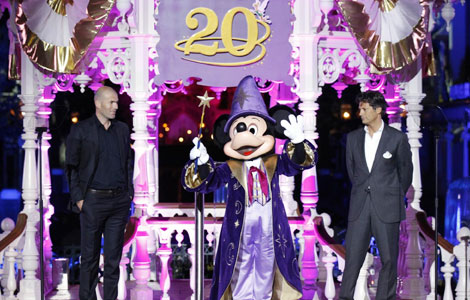
|
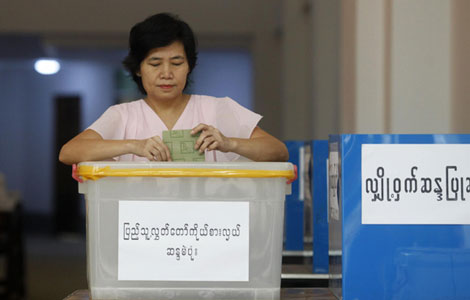
|
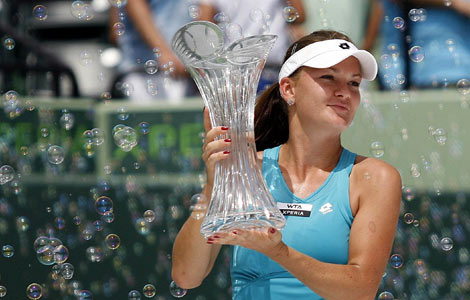
|
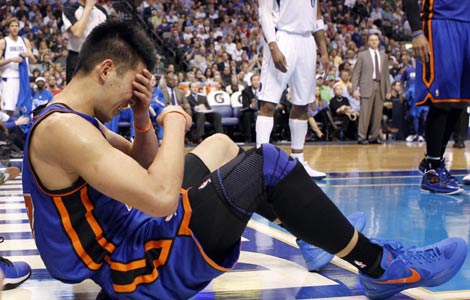
|